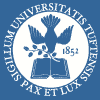
CV
Research
BCB Group
Publications
Teaching
Jobs
Interested in doing research with Prof. Slonim?
Helpful background skills include programming experience at least at the level of strong performance in CS 15 or the equivalent background in data structures and problem solving methods in Python. Familiarity with R is also useful. Additional software engineering expertise (either from work or through CS 40 and/or 100-level coding-intensive CS classes) is a plus.
We may sometimes have projects accessible to people with strong biology backgrounds and practical experience in transcriptomic data analysis (such as bulk RNA-seq and/or single cell methods in R). Basic familiarity with Unix-like operating systems is essential.
How to get started in research with us
Tufts Undergraduates:
Any Tufts undergraduate can be invited to attend BCB group meetings. Ask Dr. Slonim about timing and location.
If you are interested in getting involved in research, typical paths include: taking a class with me and doing well in it, following up individually about research discussed during the class or read on your own, and/or attending group meeting and contributing visibly (which might include independently reading background papers, asking questions, and especially volunteering to get involved when tasks come up in discussion).
To become a member of the lab or to work on research during the school year, you need to be able to commit at least 8 hours a week. During the summer, the expected commitment is substantially higher.
Tufts MS Students:
Students in any of the relevant MS programs (predominantly the MSCS, MSDS, or Bioengineering) should do more or less what Tufts undergraduates do - take a class, attend group meeting, and demonstrate engagement through independent effort.Prospective PhD Students: currently enrolled at Tufts
Current Tufts undergraduates and MS students interested in applying to the PhD program should follow the paths listed above for Tufts students to become involved in BCB group projects, and also bring your upcoming application to my attention. Apply to the PhD program in the CS department and name me in your application.Prospective PhD Students: not currently at Tufts
Important note: Individual faculty members DO NOT make admissions decisions. Admission is to the department and the program, not to an individual lab or research group. I therefore cannot and will not offer you admission if you send me email asking me to do so.
In order to be considered for admission, you must apply to the PhD program in the CS department. Name me in your application. Once you have submitted your application, it may help to email me, or better yet, have a faculty member who knows you and your research potential do so on your behalf, to alert me about your application. I regret that given my current email overload, I don't have time to answer most of these emails personally, but I do keep track of students who reach out. However, as noted above, I do not decide on departmental admissions on my own - this is done by a committee.
Prospective MS Students:
Apply to the appropriate MS program (MSCS, MSDS, Bioengineering/ bioinformatics). Name me in your application.Current Tufts undergraduates interested in admission to the BS/MS program are encouraged to attend my regular office hours to address any questions. You may also (see above) attend group meeting if interested in doing MS research in the BCB group. There's no need for current undergraduates to wait until the MS program starts to begin getting involved in research.
A note to students interested in the Bioengineering/Bioinformatics MS program: This program requires completion of many graduate level computer science courses. Historically, many unsuccessful applicants to this program have had strong math and biology backgrounds but insufficient undergraduate computer science experience to take these graduate courses. If you are such a student, consider the following alternative routes:
- apply instead to the CS postbac program, which will allow you to take the required undergraduate courses. Admission into the MS program is relatively straightforward after a successful start in the postbac program.
- apply instead to the Data Science Master's program (MSDS), which requires more math but less formal computer science, both for admissions and for graduation. However, if you do not have a good grade in undergraduate linear algebra on your transcript, we {\em strongly} suggest demonstrating proficiency in this before applying to the MSDS. Some undergraduate computer science is still expected.
- take some preparatory courses as a special / extension student. Do well in linear algebra, statistics, and data structures (usually a _second_ computer science course after an introductory class) at least, before applying. This also applies if you tooking these classes P/F during the pandemic. (When we see a "P" on your transcript, we can assume only that you obtained a grade of D- or better - which is not enough to gain admissions to our MS programs.)